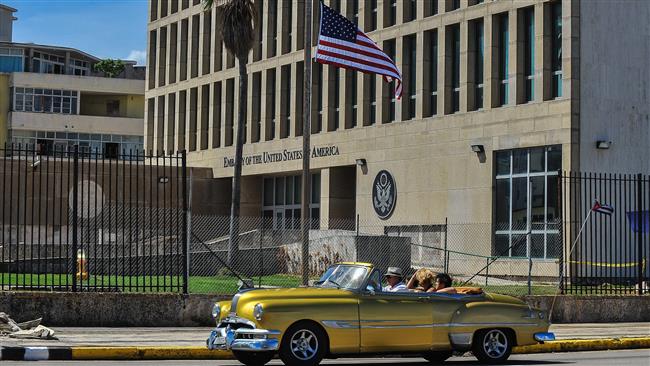US sonic attack claims science fiction: Cuba


Cuban officials probing US allegations of “acoustic strikes” on American diplomats in Havana have dismissed the claims as “science fiction.”
“This is slander by the United States,” said Coronel Ramiro Ramirez, the Cuban official responsible for the security of diplomats in the country, in response to allegations by Washington that sonic weapons had likely been used to harm its diplomats, media reported on Wednesday.
Cuban investigators strongly denied that any such weapons could have been used even by third parties without affecting the health of the other people nearby at the time or attracting much wider attention.
“It’s impossible. We are talking about science fiction,” said Lieutenant Colonel Jose Alazo, an expert in the criminal investigation unit of the Cuban Interior Ministry. “From a technical point of view, that argument is unsustainable.”
There was no immediate reaction from the White House or the US State Department to the remarks by the Cuban authorities on the matter.
US President Donald Trump accused Havana last week of being responsible for mysterious physical harm done to 24 American diplomats.
After the incidents, Washington expelled 15 Cuban diplomats and recalled more than half of American diplomatic personnel from Havana earlier in October.
While Cuba had already denounced the expulsions as “unjustified” and accused the US of inadequate cooperation, three Interior Ministry officials and a doctor leading the inquiry provided more details in an interview in Havana on Sunday.
Cuba deployed nearly 2,000 security officials and experts, from criminologists to audiologists, and mathematicians, to investigate the incidents after it was informed about them back in February.
Although the investigation has not yet concluded, it has so far failed to find any evidence to corroborate the allegations of attacks that Washington claims have caused hearing loss, dizziness, fatigue, and cognitive issues in the diplomatic personnel in the Caribbean country.
The investigators said Washington had supplied 14 recordings of the sound it says the victims heard and recorded, for instance, on their cell phones during the attacks.
However, the recordings did not contain anything that could damage human health, the investigators concluded. The noises included usual suburban sounds such as traffic, footsteps, and human voices.
They were also characterized by a deviation peak of 7 kiloHertz (kHz) in the frequency band of 3 kHz, similar to the song of a cricket. They said, however, that an audible sound would need to be very loud — above 80 decibels or akin to a plane’s engine — to have a health impact. Yet, they said, only the victims heard the noises but not their families living in the same living quarters, nor their neighbors.
“We interviewed more than 300 people in the neighborhood, we also evaluated more than 30 medically, and no one heard these things,” Alazo said.
Finally, Cuban officials emphasized that only two or three of the alleged victims had had hearing problems, according to the information provided by Washington, whereas any kind of sonic attack would have affected everyone in the area at the time.







